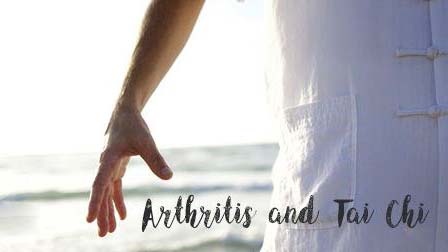

Arthritis & Tai Chi
The Centers for Disease Control and Prevention estimates that 50 percent of people age 65 or older in the United States were diagnosed with arthritis between 2013 and 2015. Is the condition, which is an informal way of referring to joint pain or joint disease, an inconvenience in your life, too?
While medications can provide temporary relief for joint pain, staying active is crucial to managing arthritis on a regular basis. This is not to say that you should do aerobic exercises or lift weights when your joints hurt, but have you considered doing a low-impact workout such as tai chi?
What Is Tai Chi?
Tai chi originated in China. There are five different styles of tai chi—some focus on non-combative self-defense techniques, and some aim at promoting wellness and improving health. The Eastern martial art is considered a mind-body exercise—people need to remain mindful of their posture, breathing, and carefully shifting their body weight to perform a series of slow-paced movements.
Learners are taught to convert internal energy (chi) into force through flowy, fluid movements. Physically, the dynamic movements—lunging, squatting, twisting, kicking, crouching and bending—can improve muscle strength, flexibility and balance. Mentally, people are required to meditate and focus on every move. In other words, tai chi trains the brain. The exercise also has a calming, relaxing and stress-relief effect.
Is Tai Chi as Good as Physical Therapy for Arthritis?
The Annals of Internal Medicine published a study, "Tai Chi Versus Physical Therapy for Knee Osteoarthritis," in 2016. Researchers found that patients who had 12 weeks of either tai chi or physical therapy showed a similar improvement in physical functioning, but the group that practiced tai chi demonstrated better emotional wellness and showed more improvement in quality of life.
At an entry level, tai chi masters begin training learners on breathing, stretching and forms. Forms are divided by length, taking 3-20 minutes to complete. Tai chi forms are adjustable to meet the needs of the individual. The body-awareness exercise can progressively improve the cardiovascular fitness and respiratory function of learners. Persistent practice of tai chi also proves to strengthen the body, improve hand-eye coordination and enable learners to prevent falls.
Holistic Care and Wellness
Grace Nguyen is drawn to the benefits of tai chi. She and her husband became certified tai chi trainers at the Yu School Tai Chi in Boca Raton, Florida, in 2016. Since then, she has been giving free tai chi lessons at senior facilities. “I naturally gravitate toward tai chi because of my upbringing and experiences,” says Nguyen. “And I want to do it (give free lessons) because I want to make a difference in the community.”
Nguyen gives 45-minute lessons to classes of six to 15 people every week; her students range from 55 years old to 106 years old. Many of her students had not exercised much before, but turned out to really like tai chi. “Tai chi is a unique form of a gentle-wellness exercise,” says Nguyen. “It gives you a nice workout, but relaxes you at the same time. Learners can practice at their own comfort level. Over time, they can feel their muscles working and experience an increase in strength.”
Before each lesson commences, Nguyen asks the class if they are able to stand. “Standing tai chi gives you the full benefits, working both the upper and lower body, but I also offer chair tai chi,” says Nguyen. “There are lots of movements you can do while sitting, so even people in wheelchairs can practice.”
When asked how long it would take for learners to feel the impact of tai chi, Nguyen says it depends. But she noted her observation of generally improved moods. She says, “I give classes in a memory facility, working with high-functioning patients. Although the students may not remember every move, the endorphin release from doing tai chi makes them happy. They also appear to be more relaxed after class.”
Nguyen and her husband currently own Right at Home, a home care agency in Boca Raton. Their home care mission aligns perfectly with the philosophy of tai chi. “Home care should be holistic,” says Nguyen. “We are not just providing companionship and personal care services, because any qualified caregiver can do that. Holistic care means that we make sure the person we take care of is improving both physically and mentally, which is a lot like tai chi—it’s not just about the body, but also the mind and spirit.”




